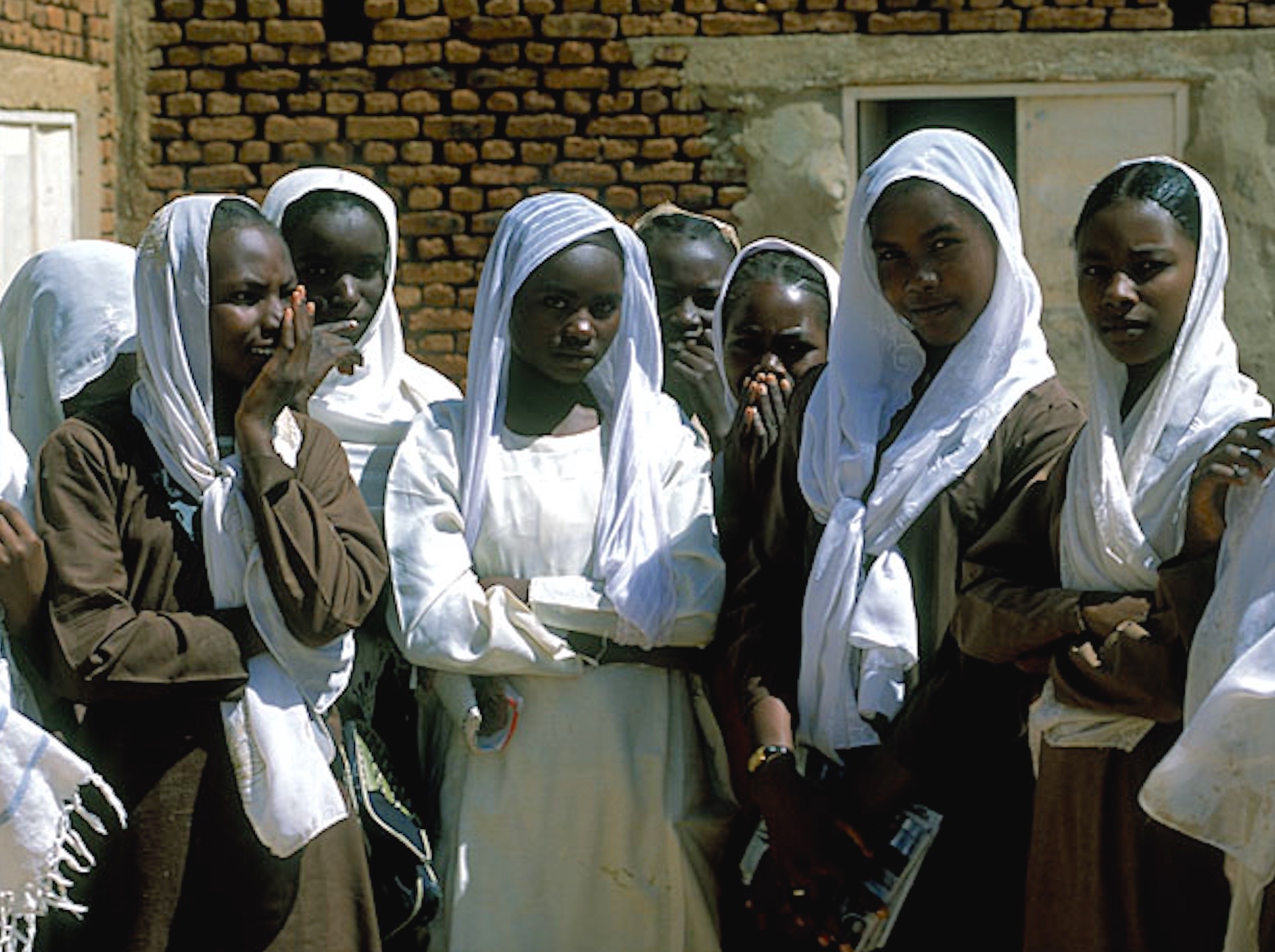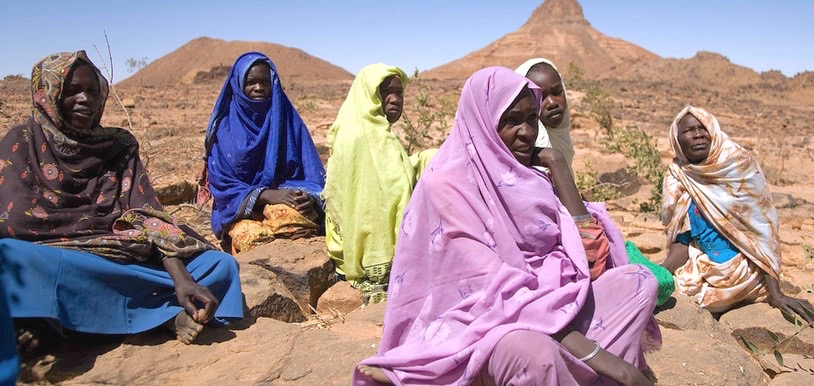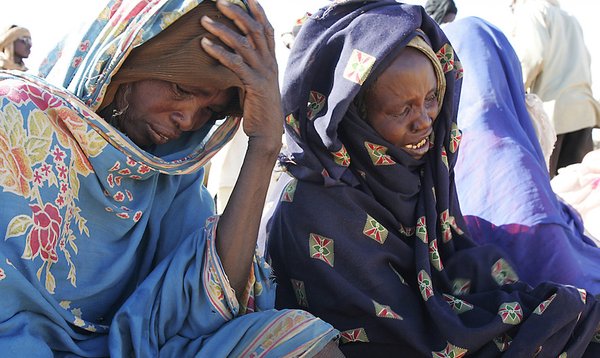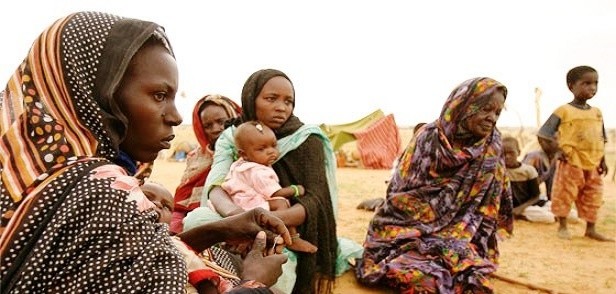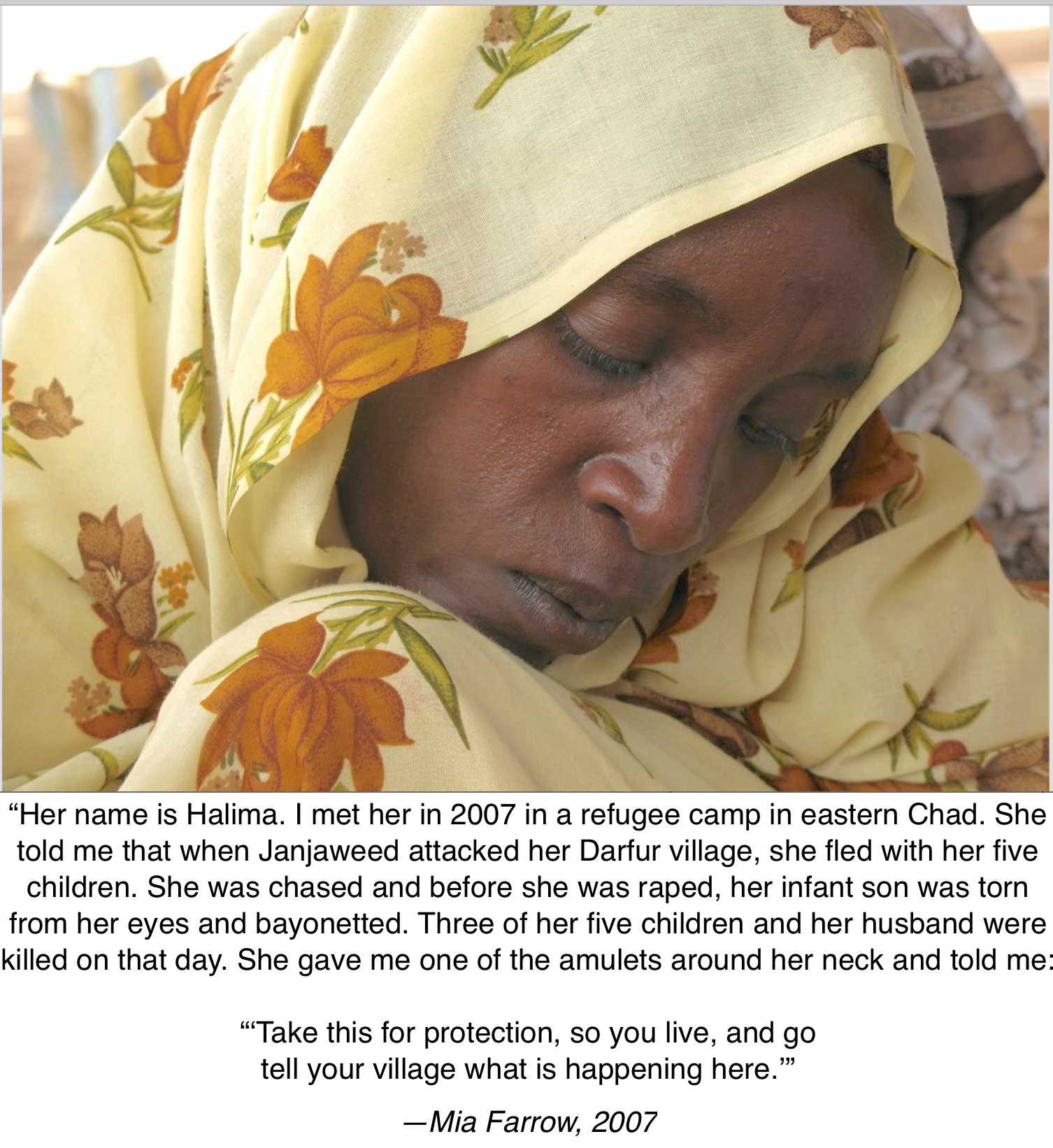Committee Responding to Sexual Violence in Darfur
Providing Safety and Rehabilitation for Girls and Women in Darfur
Gaffar Mohammud Saeneen and Eric Reeves, Co-Chairs
October 2020
One of the terribly grim consequences of seventeen years of ethnically-targeted violence in Darfur is an enormous population of girls and women who have suffered brutal, immensely destructive sexual violence. Many tens of thousands of non-Arab Darfuri girls and women have been raped, gang-raped, and sexually abused by militia forces of all kinds. This savagery continues even amidst what the international community declares—implicitly and explicitly—is acceptable security in Darfur, and has decided to complete withdrawal of the only civilian protection force deployed in the region since genocidal violence began in 2003 (the UN/African Union Mission in Darfur, or UNAMID).
Such girls as these have been particularly vulnerable to sexual violence
And yet Radio Dabanga, by far our best source of news from the ground in Darfur, continues to report the rapes and gang-rapes of girls and women, particularly during the current harvest season. The newly installed civilian governor of West Darfur recently declared a “state of emergency” in the region because of rampant, uncontrolled violence in the state.
Sexual violence, and rape in particular, inevitably leaves far more than purely physical trauma, although such trauma is frequently fatal, especially in younger girls, and often leads to medical complications such as fistulas.
Security is often completely unavailable to even the most vulnerable
The psychological damage from sexual violence can be even more devastating than physical trauma for female victims, who are often divorced by husbands, ostracized by family and village, and lead lives marked by terrible emotional scarring and crippling clinical depression. A study by the distinguished human rights group Physicians for Human Rights found in a May 2009 report on non-Arab Darfuri women living as refugees in eastern Chad (“Nowhere to Turn: Failure to Protect, Support and Assure Justice for Darfuri Women”):
“Many Darfuri women refugees live in a nightmare of memories of past trauma compounded by the constant threat of sexual violence around the camps now,” stated PHR’s Deputy Director Susannah Sirkin, who contributed to the report. “Women who report being raped are stigmatized, and remain trapped in places of perpetual insecurity. There’s no one to stop the rapes, no one to turn to for justice for past or ongoing crimes, and little psycho-social support to address their prolonged and unimaginable traumas.”
This was over eleven years ago, and things would only get worse with the creation of the notorious Rapid Support Forces (RSF) under the command of Hamdan Dagalo (more commonly known as Hemeti—and now a central figure in the transitional and nominally civilian government in Khartoum). In 2016, Eric Reeves published a detailed monograph on the extent of rape in the five Darfur states in the early years of the RSF terror (2014 – 2015). With comprehensive spreadsheets containing all extant data on rapes and sexual violence throughout Darfur, a mapping of these data onto three maps covering all of Darfur, and a full bibliography, “Continuing Mass Rape of Girls and Women in Darfur: The Most Heinous Crimes” stands as the last major quantitative analysis of sexual violence in Darfur. Reeves concludes that without any reliable census of incidents of sexual violence, the best estimate must be that “many tens of thousands of girls and women have been victims of sexual violence.”
What will become of these girls and women? What chance do they have for husbands, children, psychological recovery, or re-integration into Darfuri society if they have been ostracized?
In short, what psycho-social resources are available to girls and women, particularly those who have been displaced into the dozens of camps throughout Darfur where lives have come to an appalling standstill? So far as we know, there are no dedicated resources providing psycho-social care and treatment for victims of sexual violence anywhere in Darfur. The Amal Center in Nyala was such a resource when headed by Dr. Mohamed Ahmed Eisa. But because of the hostility of the al-Bashir regime to the very notion that sexual violence even existed in Darfur, the Amal Center was shut down.
The Committee Responding to Sexual Violence in Darfur is dedicated to the proposition that the humanitarian community in the region has not provided nearly adequate resources for an immense and still-growing population of victims. At present we are training eight Darfuri women with backgrounds appropriate to the treating of the terrible scars of sexual violence, as well as providing advice on legal recourse and protection (Gaffar, who was born in Darfur and presently lives in France, has an extraordinary network of contacts and resources in the region; he has been able to assess and select from all the applicants for training and the paid positions). These women will work, full-time, initially two each in the four quarters of Zamzam camp outside the capital of North Darfur, El Fasher. Zamzam is the second largest camp for displaced persons in Darfur, and has a grim proximity to all too much of the epidemic of sexual violence that defined the years 2013 – 2019, violence that was often clearly deployed as a weapon of war against the targeted non-Arab populations.
To date we have been able to fund and organize critical food supplies for the poorest of the poor in Zamzam, as well as other essential items (e.g., soap). But by creating the Committee Responding to Sexual Violence in Darfur, we hope to provide not only efficient and effective psycho-social services to girls and women in need in Zamzam, but to create a model for treatment that might be replicated elsewhere in Darfur.
The world must not give up on girls and women who may no longer suffer from the physical damage of sexual violence, but still endure the most intense psychological and emotional debilitation and suffering.
We ask you to join us in expanding activities of the Committee Responding to Sexual Violence in Darfur, not only in Zamzam camp but the dozens of other IDP camps with desperately needy female victims.
Contributions may take the form of checks made out to either Eric or Gaffar; Eric will wire any monies to Gaffar, who has a direct connection with our facilitators in Sudan/Darfur.
Alternatively, purchase one of Eric’s woodturnings: 100% of all proceeds will be directed to the Committee Responding to Sexual Violence in Darfur: https://www.ericreeves-woodturner.com/
In solidarity with the people of Darfur,
Gaffar Mohammud Saeneen
Eric Reeves
Co-Chairs, Committee Responding to Sexual Violence in Darfur
Biographical notes:
- Eric Reeves has worked for Sudan for more than twenty years as a researcher, analyst, and humanitarian supporter. He has published extensively on a range of subjects, including specifically rape as a weapon of war in Darfur. He has previously been a Senior Fellow at Harvard University’s François-Xavier Bagnoud Center for Health and Human Rights and is presently a Fellow at the Rift Valley Institute (Kenya). He is author of a large, compendious study of five critical years in Sudan’s recent history: Compromising with Evil: An archival history of greater Sudan, 2007 – 2012 (October 2012, in eBook format, www.CompromisingWithEvil.org). A full record of his work can be found at | https://sudanreeves.org/2011/01/29/sudan-publications-testimony-and-academic-presentations/.
- Gaffar Mohammud Saeneen was born in Darfur and is currently an education assistant with Emmaus Solidarity, helping newly arrived asylum seekers settle in France. Since 2016 he has worked with several NGOs as well as Darfur researchers. From 2017 – 2019 he worked and collaborated with the distinguished French researcher Dr. Jérôme Tubiana in writing two reports on migration.
He is a co-founder of Espoire d’ici et d’ailleurs and was vice-president from 2015 – 2019. He also co-founded United Migrants and is an active member of Collectif Urgence Darfur.
He is also the author of numerous articles about human rights violations in Sudan and has helped organize dozens of demonstrations and seminars to keep Sudanese in France informed about conditions in their country.
